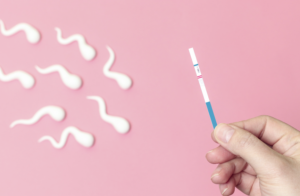Genitourinary syndrome of menopause or GSM, is a relatively new term which has been used to describe a range of different menopausal symptoms relating to your vaginal health, including:
- Vaginal dryness, burning, irritation, itchiness, inflammation
- Lack of lubrication
- Discomfort or pain during sex and/or urination
- Urinary symptoms — including recurrent UTIs, need for frequent urination, urinary urgency
- Reduced libido
GSM is a term that has replaced the previously used term of Vaginal Atrophy, as this was felt to not appropriately describe the full range of symptoms experienced.
Why does this happen?
These changes primarily occur due to a reduction in oestrogen. This hormonal change results in changes to the vagina, vulva and vaginal microbiome.
A reduction in oestrogen results in a reduction of glycogen synthesis from cells in the vaginal lining. Lactobacilli in the vaginal microbiome use this glycogen as an energy source, to produce lactic acid. Therefore, a reduction in oestrogen results often in a reduction of Lactobacillus species as well as less lactic acid capable of being produced.
One of the major roles of Lactobacillus in the vaginal microbiome is to produce lactic acid. Lactic acid plays a major role in maintaining a healthy pH, protecting against pathogens, preventing inflammation, and maintaining balance. Therefore, with less Lactobacilli present and less lactic acid produced, the vaginal environment is less stable and more likely to be in dysbiosis.
What can I do about this?
Firstly, we would recommend testing your vaginal microbiome to get to know exactly what is going on in your vaginal environment. By testing 100% of your bacteria present, you are able to understand your unique microbiome and thus create your bespoke plan of action in your free 1:1 consultation with a practitioner.
Also, check out our other blog on 6 tips to improve your vaginal health during menopause, here!
Fariba Khonsari







